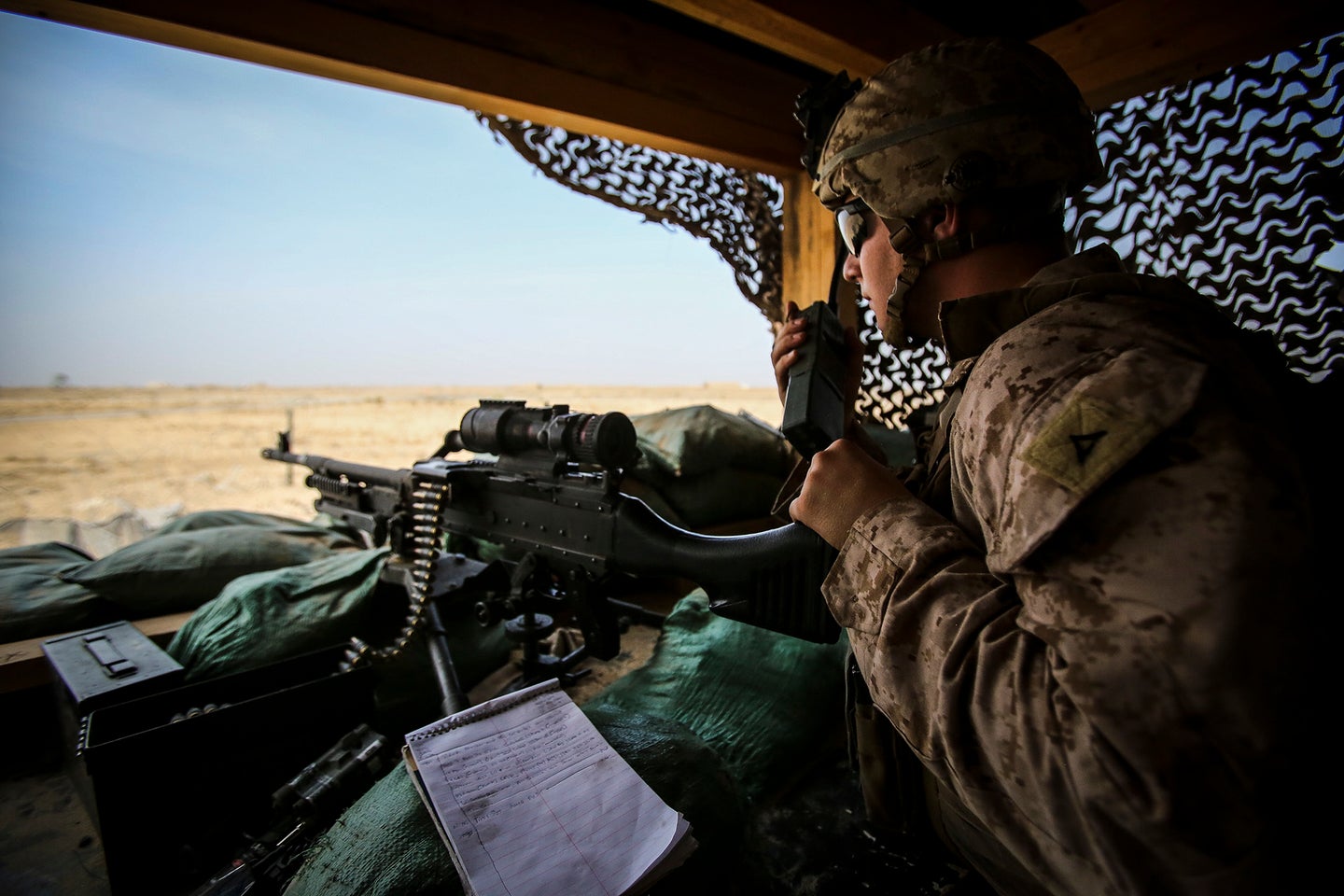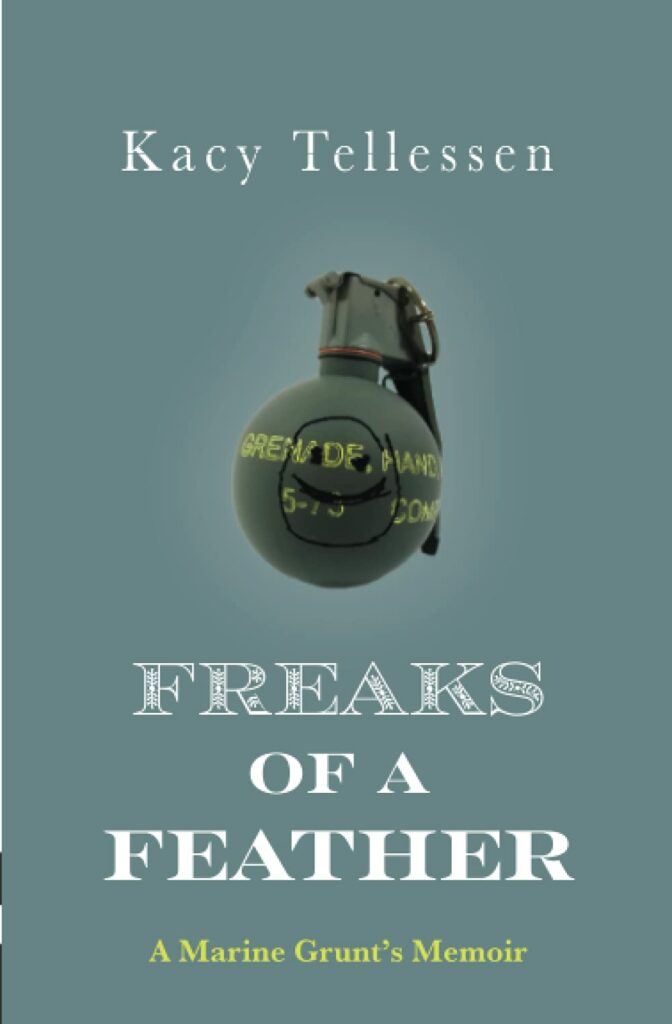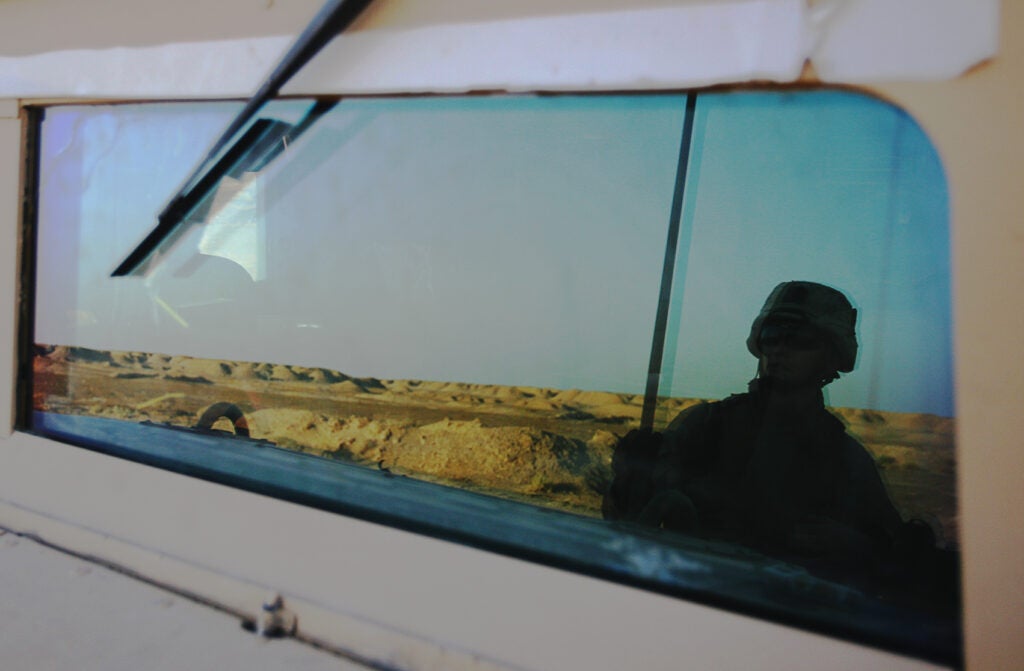WORTH PARKER

On March 28, 1990, publisher Houghton Mifflin released Tim O’Brien’s “The Things They Carried.” Four months later, on August 2, Iraq invaded Kuwait. Two months after that, my mother, ever a careful student of things her baby boy might appreciate, sent me O’Brien’s book. I was 17 years old, primed for an “I was there” combat tale, and I understood neither the book nor the fact that Tim O’Brien and Saddam Hussein had set in motion for me parallel chains of events that would twist through Iraq and Afghanistan before intersecting when I re-read “The Things They Carried” in anticipation of seeing O’Brien speak in 2019.
O’Brien’s discussion of “happening truth” and “story truth” was incredibly liberating for me, freeing me from a self-imposed obligation to write stories totally accurate from every individual perspective. But to me, even more valuable than O’Brien’s validation of letting truth arise from the ashes of accuracy is constructing a greater “story truth” built upon a foundation of brutal, honest, “happening truth.”
 That is what Kacy Tellessen accomplishes with Freaks of a Feather: A Marine Grunt’s Memoir and, if there is such a thing as literary justice, you will eventually find Tellessen’s truth shelved alongside Sledge and Leckie and O’Brien.
That is what Kacy Tellessen accomplishes with Freaks of a Feather: A Marine Grunt’s Memoir and, if there is such a thing as literary justice, you will eventually find Tellessen’s truth shelved alongside Sledge and Leckie and O’Brien.Very little of the literature arising from the post-9/11 wars has struck a literary “X ring.” Our Tim O’Brien is yet to arise. Phil Klay’s Redeployment comes closest to fiction that tells the truth. By the third story of Redeployment I could smell the odors that characterize Iraq for me; saffron and donkey shit; cigarette smoke and body odor. But though Klay is a Marine and an incredibly talented writer who achieves “story truth,” he does not write entirely from the authority of experience. Unlike O’Brien, he did not live many of the facts he re-arranges. That’s not a disparagement, merely a reflection of time, place, and duties.
There are memoirs that dance around the bullseye as well. Benjamin Busch’s Dust to Dust is so akin to poetry that it likely defies readers who cannot appreciate its complexities. Nathaniel Fick’s One Bullet Away is an engaging instruction manual for young Marine infantry officers but it does not fully transport a reader to the places about which he writes. Tellessen stands astride the line between the two: he writes a “happening truth” that meets the traditional definition but does so with enough artistic inspiration that the reader absorbs broader “story truths” about young men and war as viscerally as one smells burning shit and the ammonia stench of body armor worn for six months straight.
Reading Tellessen’s description of an IED strike upon a Humvee I am fully transported to places I only partially left. They’re not places many of us care to go again but must because we owe it to the people we left there. Telleson writes:
“The Humvee was a twisted skeleton of its former self. The only thing that told me it was a vehicle was the still-spinning tire that stuck straight up. My eyes moved from the spinning tire to the palm trees. They were painted in varying shades of human. I watched a beige chunk of someone slide off a tree and fall with a wet smack.
Someone’s torso had crashed into a yellow Toyota micro truck. The impact had forced both doors open. I thought I saw an infant’s footprint tattooed over the heart of the torso. I swallowed vomit.
We formed a defensive perimeter around the explosion, hoping the enemy would send a wave of insurgents at us. That way, we would have something to fight besides the horror that smoldered behind us. We wouldn’t be so lucky. The insurgents must have thought we had been through enough for one day, but the day wasn’t over. The day would never be over.
We had to pick them up. They deserved to go home as whole as we could make them. They were placed in parts on ponchos. There was a small segment of face that stared at everyone who walked past, the calm eyes not realizing the part they played in this macabre nightmare. I was silent as I watched gloved hands place the head of a drinking buddy into a plastic sack.”
The strength of Freaks of a Feather, and the majority of Tellessen’s attention, is found in his first deployment to Iraq. The scene-setting affected by his recounting of pre-Marine Corps life and the trials of boot camp, the School of Infantry, and a subsequent assignment to Second Battalion, Third Marine Regiment are necessary to make us understand who Kacy Tellessen is but break little new ground. That is as it should be. Neither Tellessen’s presentation of pre-Marine Corps life nor the comedic absurdity of barracks life in an infantry battalion are particularly unique to his tale. Those aspects are the threshold across which all poets must cross to become warriors and their telling cannot be ignored.
 Machine Gunner Lance Cpl. Jason P. Cogley, a 20-year-old Rocky Mount, N.C. native, peers into a humvee windshield for a moment before returning to supply route observation, one of the many different missions performed by the Military Police Company, Combat Logistics Regiment 15, 1st Marine Logistics Group (Fwd). (Official USMC photo by: Lance Cpl. Geoffrey P. Ingersoll (060829-M-8187I-001) (Released)
Machine Gunner Lance Cpl. Jason P. Cogley, a 20-year-old Rocky Mount, N.C. native, peers into a humvee windshield for a moment before returning to supply route observation, one of the many different missions performed by the Military Police Company, Combat Logistics Regiment 15, 1st Marine Logistics Group (Fwd). (Official USMC photo by: Lance Cpl. Geoffrey P. Ingersoll (060829-M-8187I-001) (Released)What is unique about Tellessen, at least in a machine gun squad, is his deep love for literature, particularly the Greek Classics. That background gives his tale both context and depth often lacking in other post-9/11 stories. It is the layer beneath the tattoos and desert grit and all the male affectations that come with life in the dog pack of a Marine infantry company that makes the book stand out compared to other post-9/11 combat memoirs.
The military is filled with young men and women desperate to prove themselves, to deserve the deference and respect that only time, experience, and wisdom can bring. Kacy Tellessen was no different. In the Marine Corps, the most direct path to elevation is as a grunt. There he sought the things he found. Some he still treasures, some he deeply regrets. Regardless, he lived the fullness and bore the brunt of those experiences. He lost friends and killed enemies. He endured mind-numbing boredom, rode rocket ships fueled by combat, and came home burdened.
He experienced many of the issues of post-combat veterans and is honest about all of them, neither asking for, nor offering excuses. His deeply lyrical account of all the highs and lows of grunt life strikes the perfect balance of deep personal reckoning and unrestrained honesty. His writing is neither spare nor overwrought. That balance is important. It is the truth of the experience of most of the combat veterans amongst whom I’ve spent the last two decades; we are neither broken nor fully whole. We simply are and some days that’s easier than others. That Tellessen neither minimizes nor plays for effect that truth makes Freaks of a Feather a particularly valuable combat memoir. As a first offering, it is deeply impressive. One hopes it is not the last for, as Tim O’Brien reminds us, “But this too is true: stories can save us.”
No comments:
Post a Comment